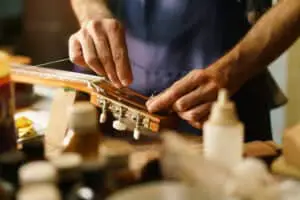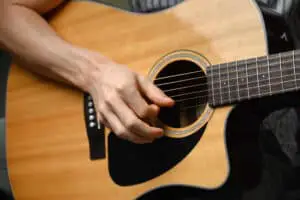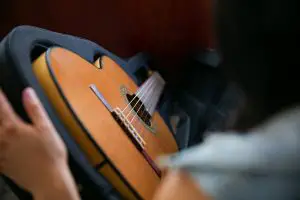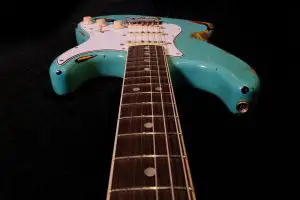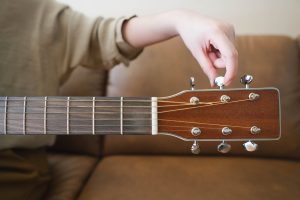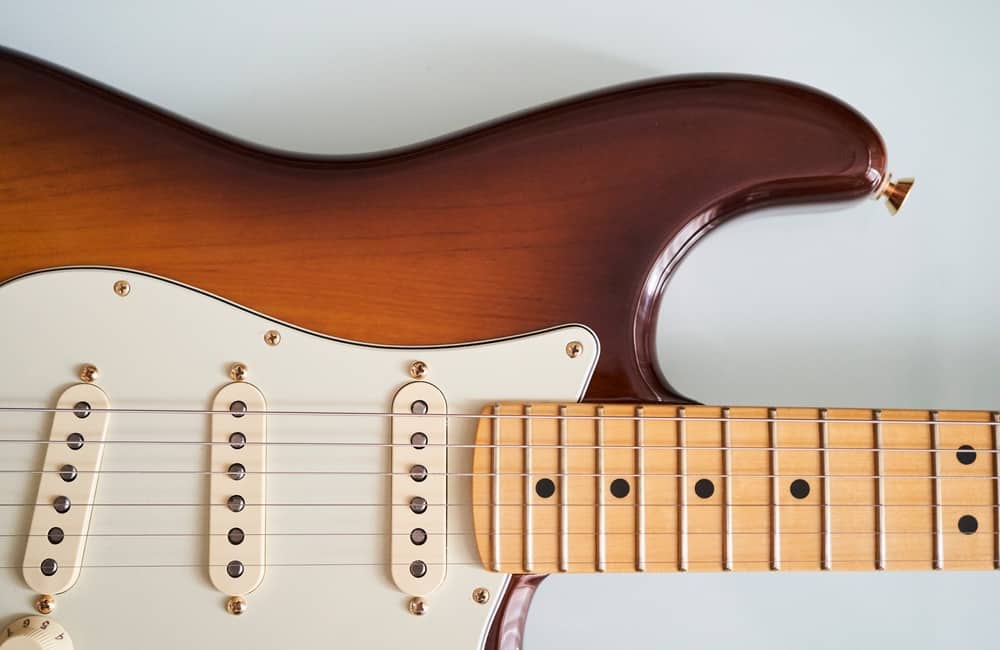
I know what you’re thinking, yes, you may need to refret your electric guitar at some point in your guitar journey. Like every other instrument, the guitar needs regular maintenance to function properly. If you stick to one guitar, you’ll probably restring and adjust the action multiple times. But changing your frets is a rare occurrence.
Electric guitar frets don’t last forever. They’ll eventually wear off after all those years of jamming, and you’ll need to replace them. But how long do they last anyway?
Electric guitar frets last up to 20 or 30 years on average. However, some factors like the fret material, your playing frequency, and style can affect how fast your frets wear.
Let’s look at some of these factors and everything you need to know about caring for your electric guitar frets.
What Affects the Lifespan of Electric Guitar Frets?
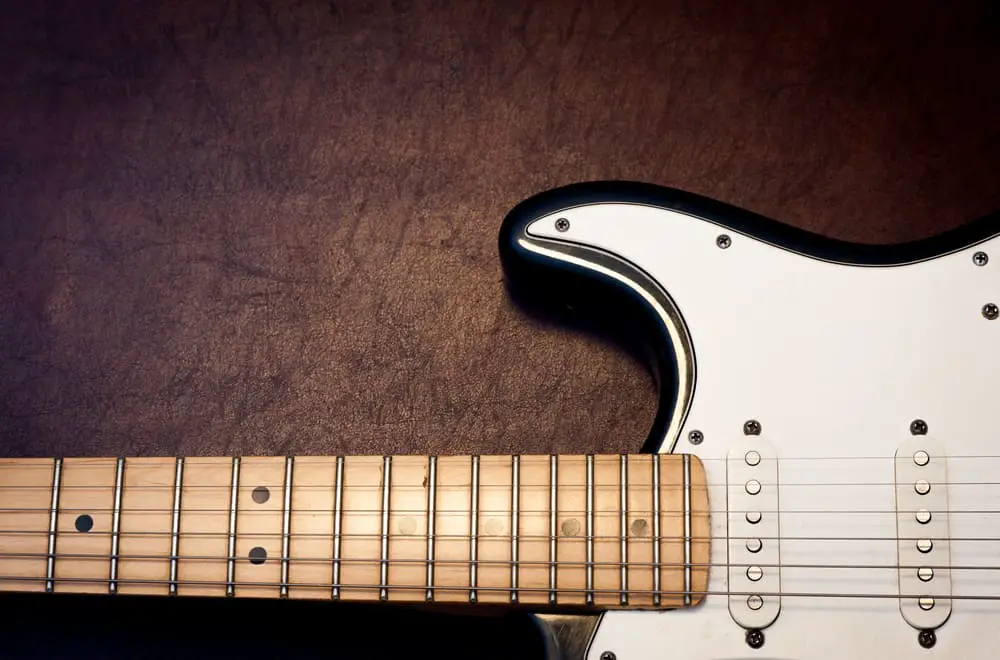
The main factor affecting your electric guitar frets is you. Yep, it all depends on the way you handle your guitar. But there are some things you may be doing to hasten the process and external factors to take into account.
Pressing Your Strings Too Hard
Many guitarists press on their strings too hard, this is most likely because they’re self-taught. An instructor won’t hesitate to correct this habit as you learn to play the guitar.
You only need to press on the string until the note sounds clear. Aim to use as little pressure as possible because the more pressure you exert on your strings, the faster your fret will deteriorate.
Bending Your Strings
I get it, you want to learn to bend your strings like Jimi Hendrix or Eric Clapton. But too much of it can negatively impact your frets. Every time you do a string bend, you’re scraping the fret with the string.
That doesn’t mean you should totally stop string bending or reduce the rate at which you bend your strings. Just note that frequent bending will wear out your frets.
Using Capos and Finger Slides
Sliding is a cool technique that allows you to manipulate the sound of a note after you play it. It also helps you smoothly connect notes and change positions on the fretboard. However, it adds a considerable amount of weight and pressure to your guitar frets.
Same with capos. Every time you use a capo on your fretboard, it exerts significant pressure on that area. If you use capos and slides too frequently, your frets won’t last longer than a few years. You can use an adjustable capo to control the pressure it puts on your frets.
Additionally, the slide you’re using may be the problem. Metal slides do the most damage. Try using a glass or ceramic slide. The surface of the slide is smooth, and it won’t damage your frets as much.
Strumming Aggressively
When you strum aggressively, you need to hold down the strings twice as hard to keep them pressed to the fretboard. Although the damage it does is minimal, energetic strumming can shorten the lifespan of your frets.
Using Heavier Strings
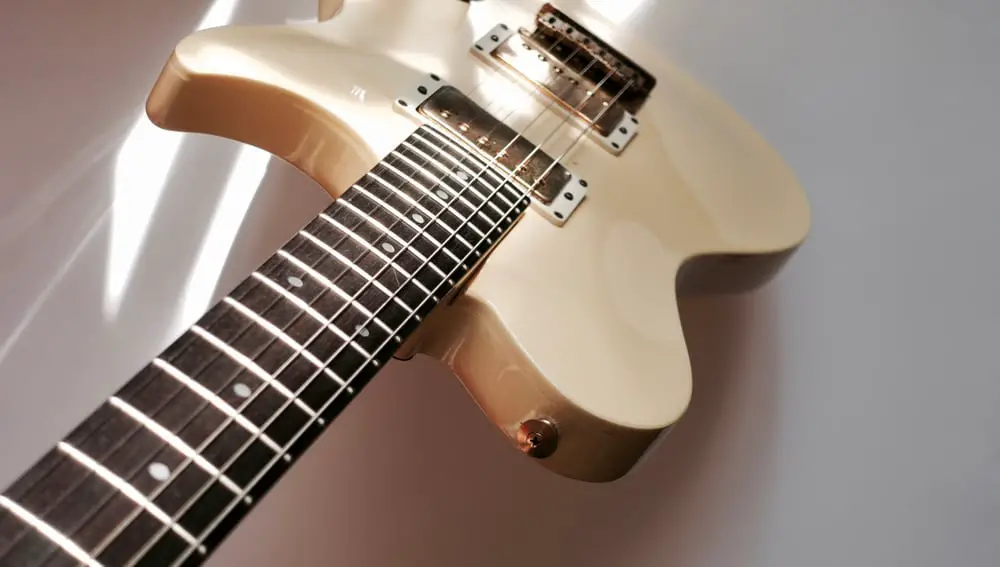
Heavy-gauge strings exert more pressure on frets. Although it comes down to your personal preference, light strings sound brighter and are easier to play than heavier gauge strings.
Additionally, light strings are easier to bend but are fragile. Heavy strings are sturdier but are more difficult to play and deplete the guitar. Medium-gauge strings have a little of both. If your guitar strings feel comfortable, there is no need to change. But if you want to restring your guitar, contact a technician to know which string gauge to use.
Humidity
It would be best to store your electric guitar in an environment with medium humidity. Too high humidity causes the wood to expand, and the frets loosen. Conversely, low humidity causes the wood to contract and pushes your frets out of place.
This phenomenon is known as fret sprout. When it happens, frets protrude from the fretboard, and they can hurt your fingertips. To fix it, you’ll have to sand the frets to get rid of the sharp edges.
When you’re not using your guitar, ensure you store it in a case to protect it from humidity. If your home is usually damp, a humidifier in the guitar case will keep your instrument safe.
Sweat
You’re rocking so hard that you continue to use your sweaty palms to play. You may feel like a rock star at the moment, but it can harm your precious guitar in the long run. Sweat causes corrosion on the frets, and it can also damage your Strings.
Rust spots on your guitar are a hallmark of sweat damage. A preventive measure is to thoroughly wash and dry your hands before using your guitar. After playing, clean your guitar with a dry cloth to eliminate moisture on the fretboard.
Signs That Tell You When to Refret Your Guitar
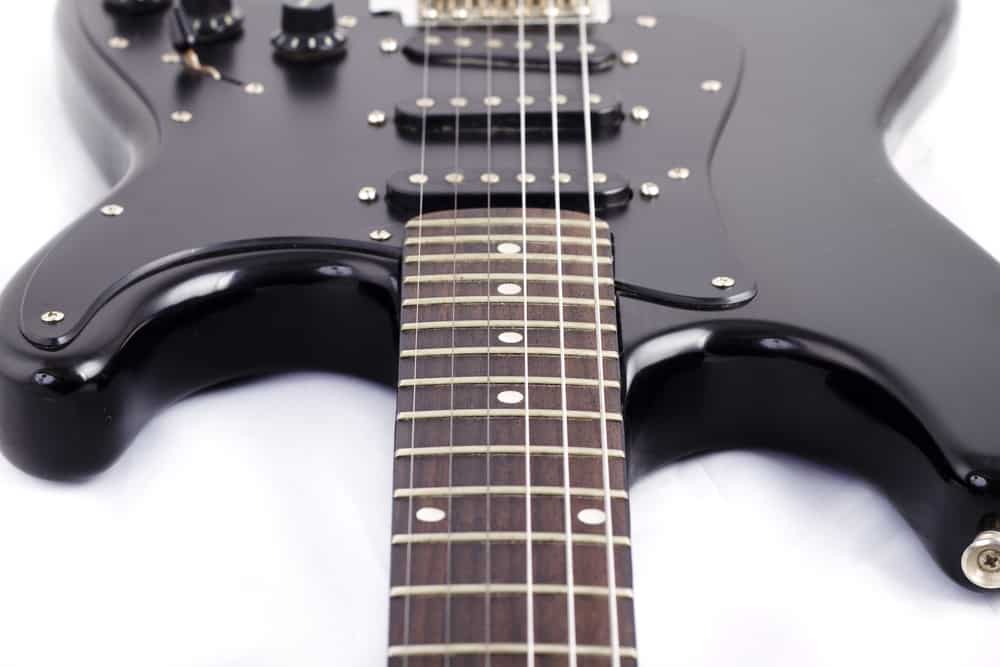
Before you walk into that guitar store to refret your guitar, you need to be sure your frets need replacement. Here are some common signs.
Less Sustained Notes
A sustained note is when the string is pressed firmly against the fret. It also means the string has more freedom to vibrate and produce sound. If you notice less sustain, then it’s a sign.
Indents
When your strings press against your frets and leave marks, the frets are weak, so they’ll need changing. Although some methods can help you fix individual frets, it’s better to change the whole fretboard altogether.
Fret Buzz
Fret buzz is that terrible buzzing sound you hear when you’re not pressing down on the string hard enough. It can also be caused by low action (when strings are too close to the fretboard) or worn-out frets. If you’re sure you’re pressing down on the string hard enough and you hear the annoying buzz, you need to either replace or level your frets.
Sunken Frets
Using a capo regularly can make a fret lower than other frets. The trick is not to overtighten your capo on a fret; you just need enough pressure to hold it in place.
Takeaway
Don’t be conscious of the factors mentioned above because your electric guitar frets will last decades regardless. If you ever need to refret your guitar, get a technician to do it for you so you won’t damage your instrument.

